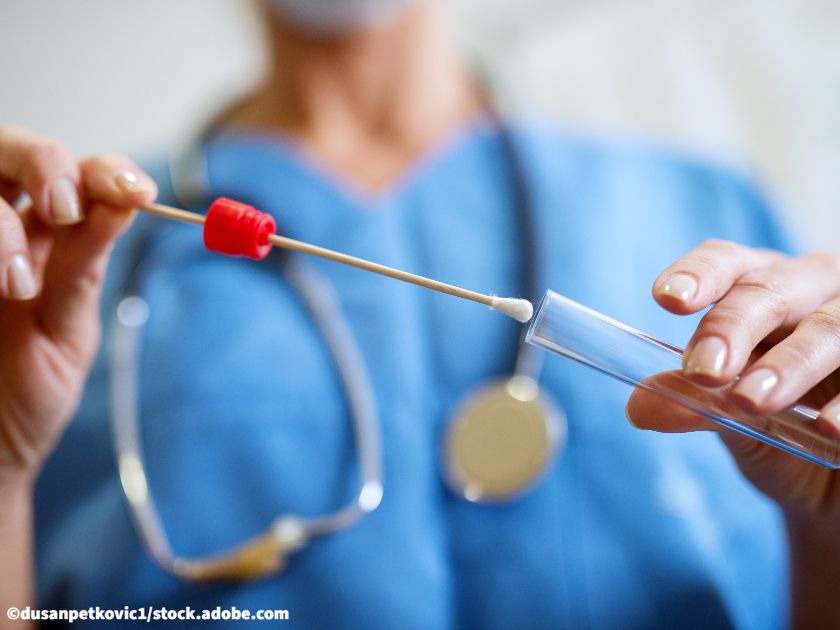- Clinical Technology
- Adult Immunization
- Hepatology
- Pediatric Immunization
- Screening
- Psychiatry
- Allergy
- Women's Health
- Cardiology
- Pediatrics
- Dermatology
- Endocrinology
- Pain Management
- Gastroenterology
- Infectious Disease
- Obesity Medicine
- Rheumatology
- Nephrology
- Neurology
- Pulmonology
FDA Issues EUA for a New Rapid Saliva COVID-19 Diagnostic Test
The SalivaDirect rapid diagnostic test uses a new method of processing saliva samples when testing for COVID-19.

The US Food and Drug Administration (FDA) issued an emergency use authorization (EUA) for theSalivaDirect COVID-19 diagnostic test that uses a new method of processing saliva samples when testing for coronavirus disease 2019 (COVID-19).
According to the August 15, 2020 FDA press release, the new test was developed by Yale School of Public Health and does not require any special type of swab or collection device so saliva samples can be collected in any sterile container.
“The SalivaDirect test for rapid detection of SARS-CoV-2 is yet another testing innovation game changer that will reduce the demand for scarce testing resources,” said Admiral Brett P. Giroir, MD, assistant secretary for health, COVID-19 testing coordinator, in the FDA press release. “Our current national expansion of COVID-19 testing is only possible because of FDA’s technical expertise and reduction of regulatory barriers, coupled with the private sector’s ability to innovate and their high motivation to answer complex challenges posed by this pandemic.”
The SalivaDirect test is also unique because it does not require a separate nucleic acid extraction step which is particularly significant as extraction kits used for this step have been prone to shortages throughout the pandemic. Allowing a diagnostic test to be performed without these kits will enhance the capacity for more testing, while reducing the strain on available resources.
“Providing this type of flexibility for processing saliva samples to test for COVID-19 infection is groundbreaking in terms of efficiency and avoiding shortages of crucial test components like reagents,” said Stephen M. Hahn, MD, FDA commissioner, in the same press release.
The SalivaDirect methodology has been validated and authorized for use with different combinations of commonly used reagents and instruments. Also, Yale intends to provide the SalivaDirect protocol to interested laboratories as an “open source” protocol allowing them to follow the protocol and obtain their own components to perform the tests.
In addition, SalivaDirect does not use any proprietary equipment from Yale and can use commercially available testing components so that it may be built and used in any high-complexity laboratories in the US, provided they comply with the conditions of authorization in the EUA.
Researchers at Yale School of Public Health involved in the development of SalivaDirect said in a press release from the school that they are not interested in commercializing the method. They note that testing has been a stumbling block in fighting the pandemic and hope that the simplified method will help those most in need. The release notes that some experts are calling for up to 4 million tests per day. SalivaDirect provides one pathway toward that goal, the researchers said.
This is the 5th test granted EUA by the FDA that uses saliva as a sample for testing.
_________________________________________________________________________________
For more COVID-19 coverage for primary care, visit our COVID-19 Resource Page.
No Rx Required for COVID-19 Vaccination But ACIP Calls for Better Informed Consent Process
September 22nd 2025The ACIP on September 19 narrowly voted against requiring a prescription to get the shot but urged more detailed discussion of vaccine risks during shared decision making conversations.
